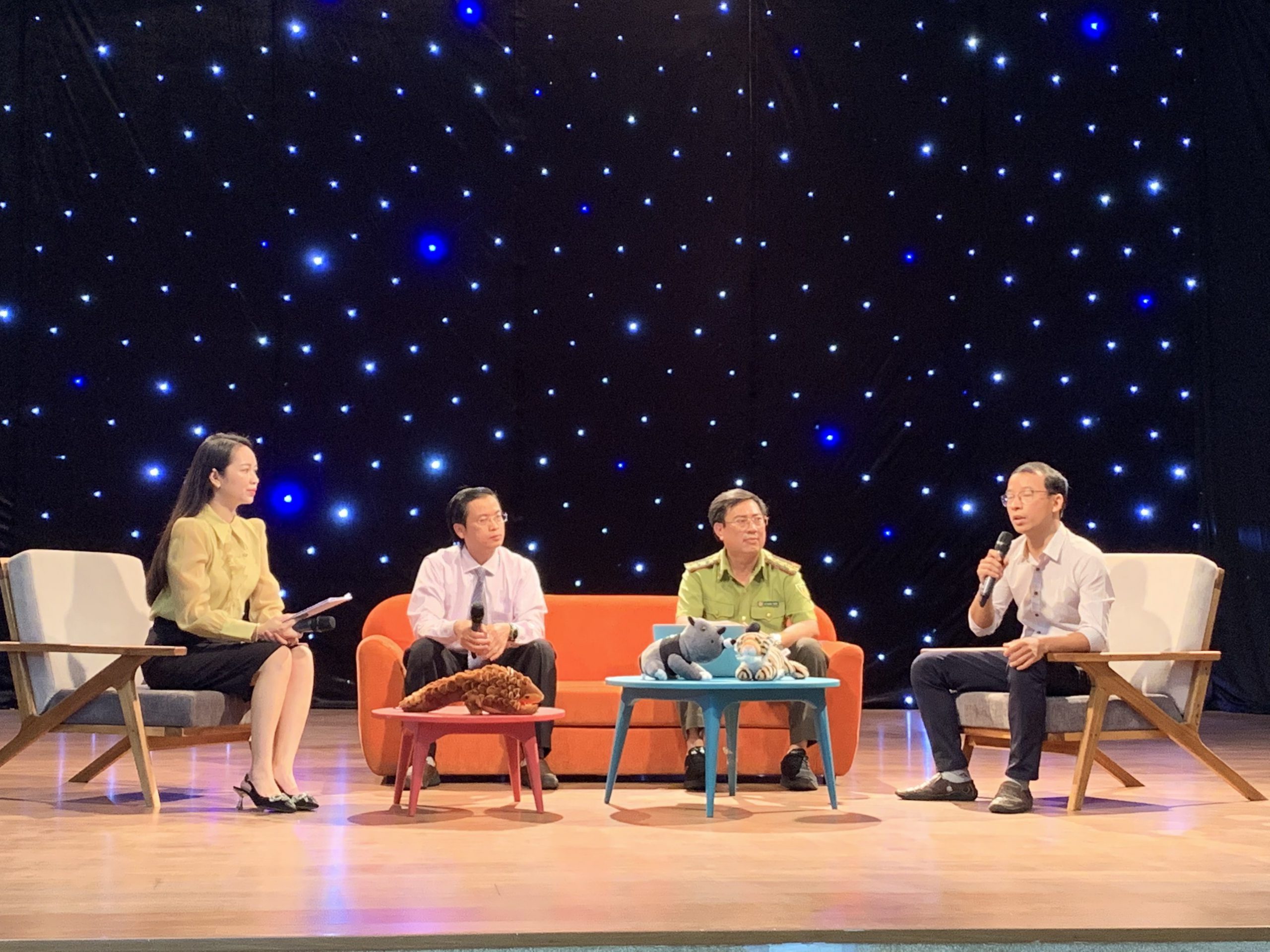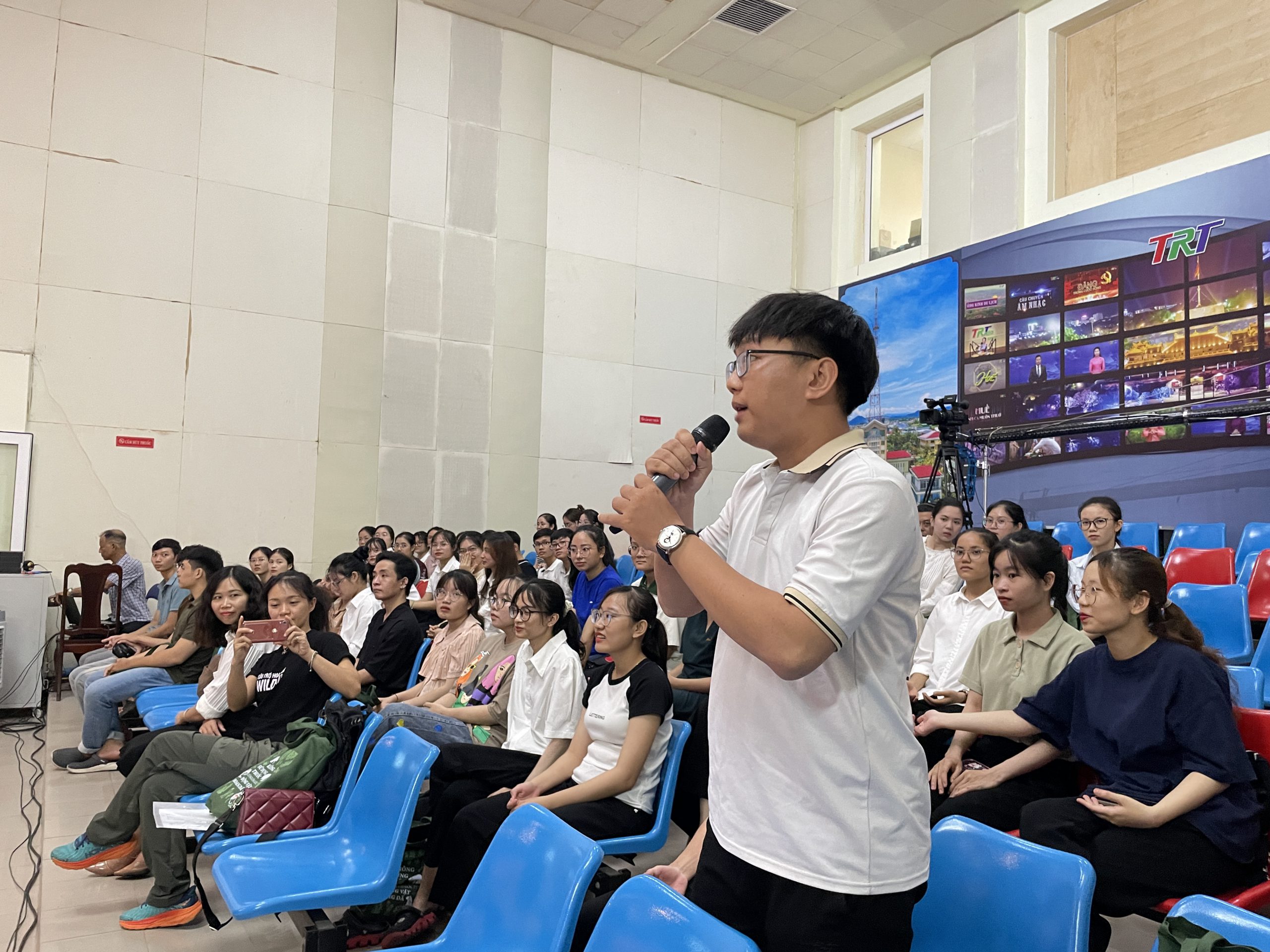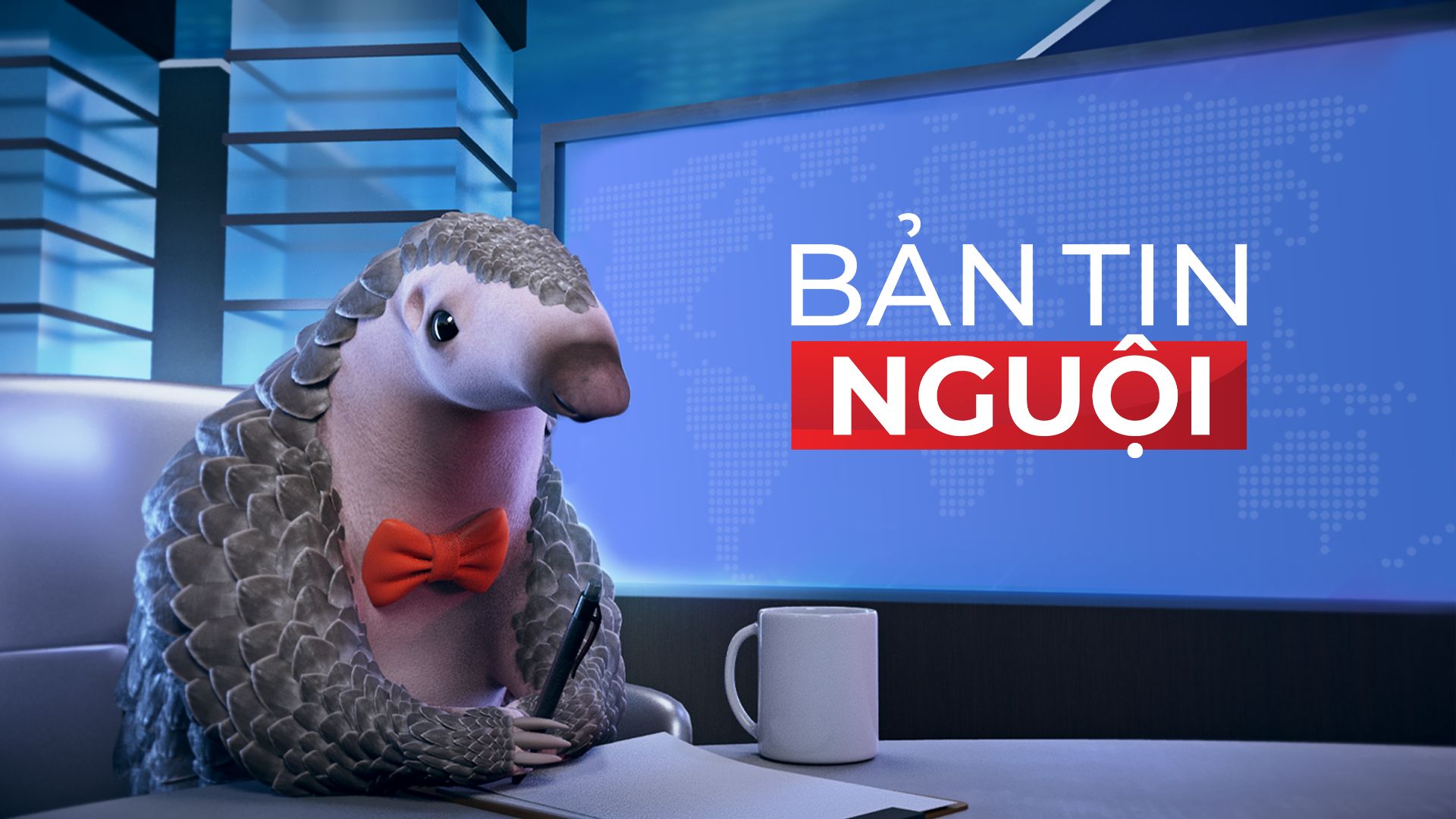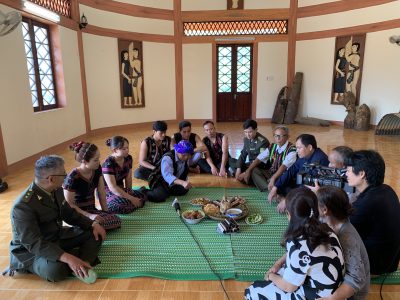Seminar “Wildlife Consumption and Disease Risks”
For centuries, wildlife products have been used for various purposes such as religious symbols, medicinal treatments, decorative items, symbols of power and wealth through intricate carvings, food, etc., especially in East Asia and Southeast Asia. The exploitation, illegal trade, and consumption of wildlife species are viewed by the international community, including Vietnam, as a serious problem, harboring numerous risks of global pandemic outbreaks.
To raise awareness about the harmful effects of wildlife consumption, on June 14, 2024, Choice, in collaboration with WildAid Vietnam and Thua Thien Hue Radio and Television, organized the seminar “Wildlife Consumption and Disease Risks” at the TRT Television Hall. The seminar featured the following guests:
- Mr. Le Ngoc Tuan – Head of Thua Thien Hue Provincial Forest Protection Department
- Dr. Doan Van Minh – Medical Doctor, Traditional Medicine Faculty, Hue University of Medicine and Pharmacy
- Mr. Nguyen Quang Tam – Master’s Degree, Medical Doctor, Traditional Medicine Faculty, Hue University of Medicine and Pharmacy

The guests shared and discussed the current situation, causes, and solutions to prevent wildlife consumption.
Thua Thien Hue is known for having some of the most diverse biological resources in Vietnam. It boasts over 90,000 hectares of primary forest located in Bach Ma National Park, Phong Dien Nature Reserve, and Sao La Conservation Area, home to many rare animal species. Due to this high biodiversity, many forests in Thua Thien Hue have long been targets for poachers and wildlife traffickers. According to a report from the Thua Thien Hue Provincial Forest Protection Department, from early 2023 to the first quarter of 2024, the department discovered and handled 42 cases, imposing fines totaling over 350 million VND. For bird protection efforts, the department organized 58 operations, confiscating and processing 10,500 fake storks, 57,505 glue sticks, 26,503 square meters of netting, 1,387 supporting poles, and releasing 275 individuals back into the wild. These efforts reflect the long-term commitment to biodiversity conservation.
According to Mr. Le Ngoc Tuan, authorities in Vietnam have implemented effective communication programs and measures to combat wildlife trafficking. However, the hunting, captivity, and trade of wildlife remain sophisticated and complex. Vietnam is noted for high levels of wildlife trade and hunting and serves as a transit point for wildlife from Africa to other countries in the region via air, land, and sea routes.
Vietnam and China are the two countries that consume the most rhino horns, pangolin scales, and bear bile, as many believe these are miracle cures for all diseases. However, this only serves the sole purpose of illegal profit, pushing these species to the brink of extinction. Dr. Doan Van Minh highlighted that consuming these products poses many potential risks of infection or disease transmission because wildlife can be disease carriers or intermediate hosts.

Audience questions for the guests
Guests and audience members shared and discussed the current situation, causes, and solutions to prevent wildlife consumption. They concluded with valuable messages, gaining a better understanding of the importance of wildlife protection, aiming for a greener and safer future for all species.








